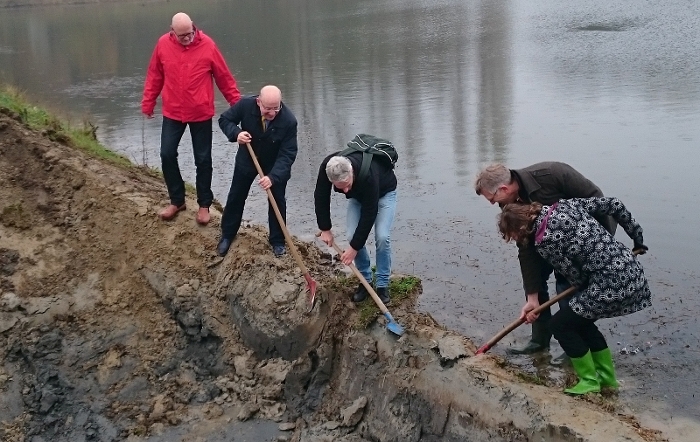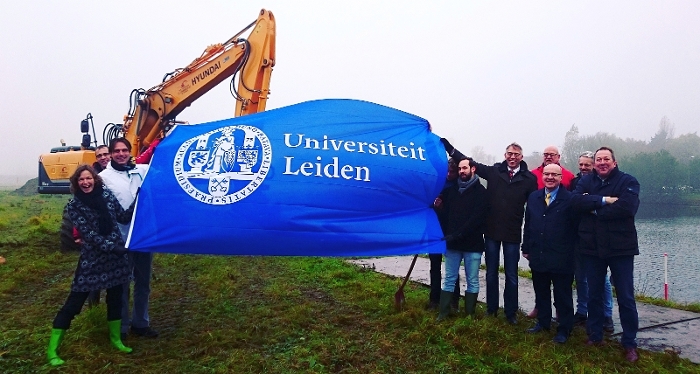
36 ditches as living lab for water quality
On Monday 14 November, the first spadeful of earth was dug for the construction of the Living Lab, an experimental test site to study living organisms in freshwater. A total of 36 ditches will be dug out to create a natural environment where researchers can study the effects of chemical compounds from agriculture on biodiversity in our water. This lab is the first of its kind in the Netherlands.
Crowdfunding
The lab is an initiative of the Institute of Environmental Sciences at Leiden University (CML). CML managed to collect the 15,000 euros needed to construct the lab in just eight weeks via crowdfunding. The Rijnland District Water Control Board and Naturalis Biodiversity Center are also partners in the Living Lab.

Living Lab
The Living Lab will be made up of 36 experimental ditches that will be fed with water - and also with living organisms - from an adjoining pond. All the living organisms in these waterways will form a single ecosystem and will be important in a range of different processes, such as purifying our water. So far too little is known about the impact of chemical compounds on biodiversity in our water and on water quality; this is because research is mainly carried out on separate types of organisms in the controlled environment of a lab. The aim of the Living Lab is to determine the effects of chemical compounds on aquatic biodiversity and on water quality in a natural environment.
The research
The Leiden Institute of Environmental Sciences will study the effects of pesticides on macrofauna (small water organisms) and ecosystem processes, while Naturalis will analyse the DNA of the macrofauna from the ditches. Their combined research will generate many new insights on ecological and chemical water quality. This represents a unique partnership where the two lines of research will have strong mutual benefits. The findings will be important for water managers, including the Rijnland District Water Control Board that is providing a considerable financial and substantive contribution.

